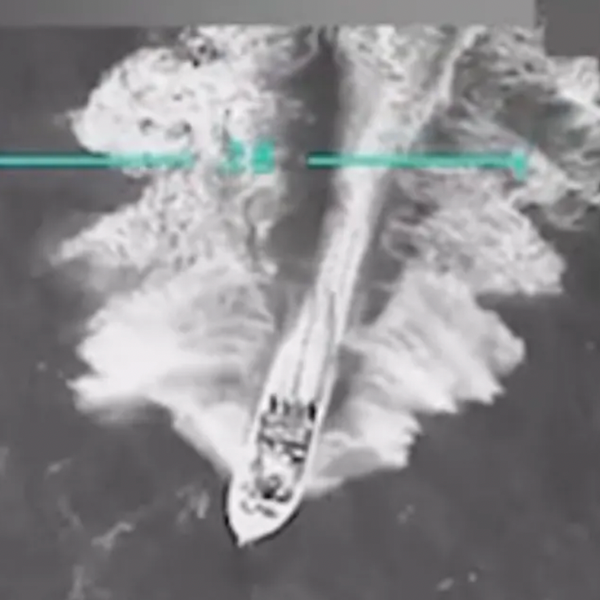It was never a question of whether, but of how President Bush would use the graveyards of Sept. 11 to season his re-election campaign. The question was just answered: By eroticizing the dead of that fateful day and using the flag as their g-string.
The first television ads of the Bush campaign released last week don't yet linger on the dead. They only dig one back up for a cameo in the 30-second spot that sums up the "challenges" Bush had to face after taking office ("An economy in recession. A stock market in decline. A dot com boom gone bust. Then a day of tragedy.") The ads are a teaser of what's to come. They announce that the Republican National Convention in Manhattan, a few blocks from Ground Zero and a few days removed from the attacks' third anniversary, will be an orgy of Sept. 11 videos. Last week's ads are the previews.
That the administration is cashing in on the dead is not unusual. President Lincoln did it to great effect at Gettysburg. President Reagan did it movingly in Normandy, on the 40th anniversary of D-Day, when the 1984 presidential election was conveniently within sight. Most presidents do it badly, so most have the grace to leave the dead in peace once the speeches are over. President Bush has been doing it gracelessly and cravenly for two and a half years. The dead of Sept. 11 are his all-purpose security blanket. He's dug them up at every opportunity to call for another tax cut in the name of "economic security," another country to invade in the name of "national security," another reason to ignore the Bill of Rights in the name of "homeland security." The dead of Sept. 11 have been just as easy to dump like 3,000 used up lemon rinds every time the Bush administration has snubbed the 9/11 Commission investigating the attacks.
The dead are also a recruiting tool for the Republican machine. That corpse in the campaign ad wasn't dug up at random. Unlike the pathological randomness of policy in the Bush White House, nothing is random in the Bush campaign. Firefighters are shown ceremoniously carrying the remains of a victim atop the rubble of the World Trade Center. Judging from the size of the flag draping the stretcher and the uniforms of the many stretcher bearers, the victim is a firefighter. "Ordinary" victims at the site didn't receive nearly the same respect or solemnity as did firefighters. It's an important detail in the choreography of the ad.
There are 1.1 million firefighters in the United States. They generally vote Democrat. Beginning on September 14, 2001, while a few firefighters' bodies were still warm in the rubble -- if only from the still-raging fires -- the Bush campaign got busy profiting from the simmering tragedy to reclaim a fat voting block from the Democrats. It got a 69-year-old retired firefighter and avowed Republican by the name of Bob Beckwith, who'd strolled down to the site for a look-see, to stand on a charred fire truck. It got President Bush to stand next to him and put his arm around him, then to shout into a bullhorn something only the flies and the microphones around him could hear. "Can't hear you," was what Bush heard again and again from the crowd (and the dead) below. But hearing wasn't the point. The image, and winning the firefighting union's allegiance, was the point. (Beckwith 16 months later would refuse a Democratic Congresswoman's request to travel to Washington, D.C., and help convince the administration to release $90 million in health aid for the more than 1,000 workers at Ground Zero who developed respiratory problems and other illnesses. Beckwith's excuse: He didn't want to "embarrass" the president.)
The charred fire truck was President Bush's first Abraham Lincoln-like landing -- not to compare it to Lincoln at Gettysburg, but to Bush's telegenic landing on the aircraft carrier by that name, where he brandished the death of a few thousand Iraqis and 117 Americans as campaign fodder. Stay tuned for those ads. To be fair to the Bush campaign, it doesn't have much else to run on. When they're not hung up on political necrophilia, the campaign's ads are elegies to national and economic insecurity, Bush's towering twin legacies. That doesn't diminish the obscenity of the ads' imagery. The Federal Communications Commission is on a crusade to erase obscenity from the airwaves. But it's going after the likes of Bubba the Love Sponge and Howard Stern, whose g-string-inspired airs offend only those who specialize in being offended. There's a case to be made for denouncing the hoarier obscenities of our schlock jock in chief and his Sept. 11 grave-robbing, which pollutes national memory. Sept. 11 shouldn't so quickly have become yet another Superfund site.


